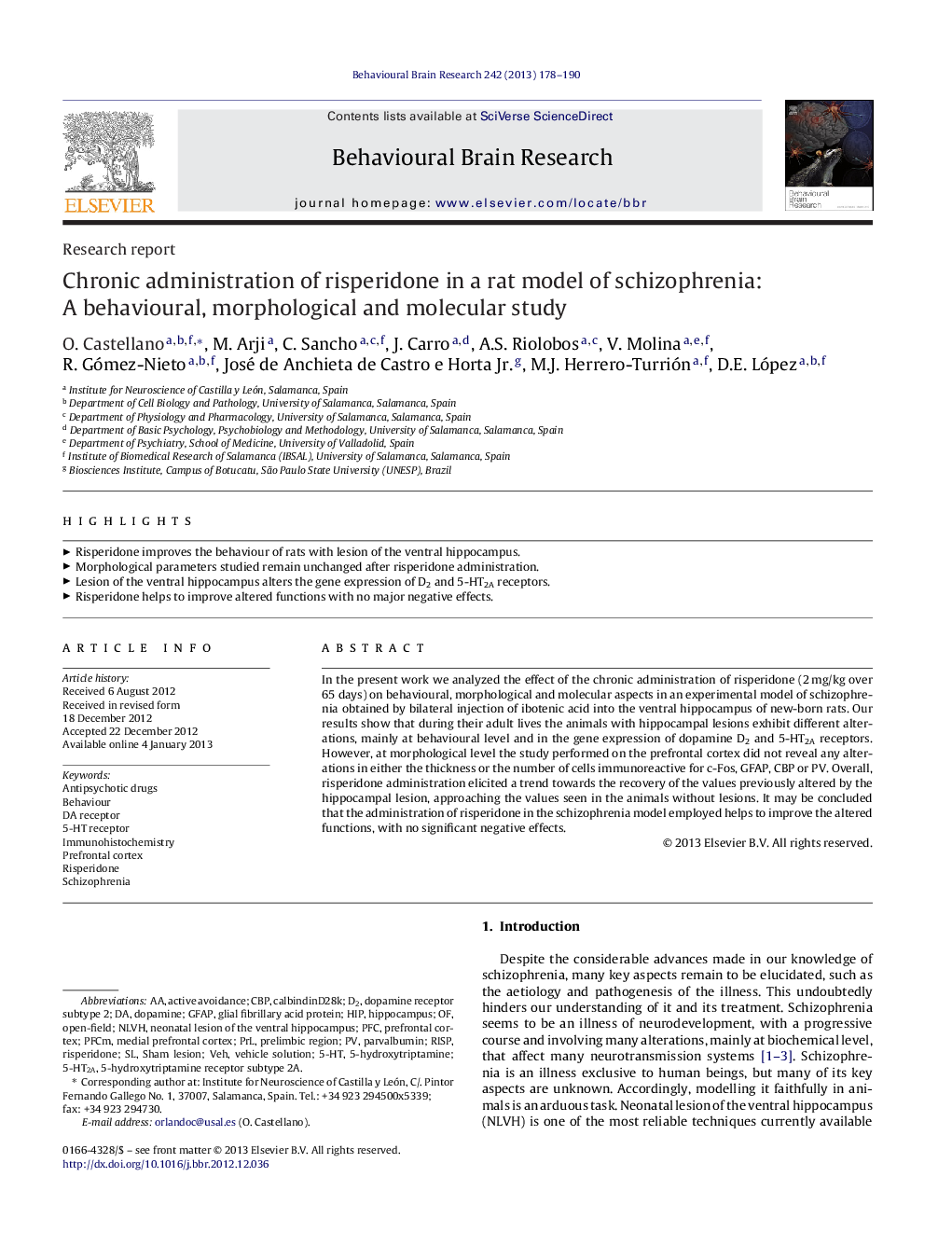| Article ID | Journal | Published Year | Pages | File Type |
|---|---|---|---|---|
| 4312817 | Behavioural Brain Research | 2013 | 13 Pages |
In the present work we analyzed the effect of the chronic administration of risperidone (2 mg/kg over 65 days) on behavioural, morphological and molecular aspects in an experimental model of schizophrenia obtained by bilateral injection of ibotenic acid into the ventral hippocampus of new-born rats. Our results show that during their adult lives the animals with hippocampal lesions exhibit different alterations, mainly at behavioural level and in the gene expression of dopamine D2 and 5-HT2A receptors. However, at morphological level the study performed on the prefrontal cortex did not reveal any alterations in either the thickness or the number of cells immunoreactive for c-Fos, GFAP, CBP or PV. Overall, risperidone administration elicited a trend towards the recovery of the values previously altered by the hippocampal lesion, approaching the values seen in the animals without lesions. It may be concluded that the administration of risperidone in the schizophrenia model employed helps to improve the altered functions, with no significant negative effects.
► Risperidone improves the behaviour of rats with lesion of the ventral hippocampus. ► Morphological parameters studied remain unchanged after risperidone administration. ► Lesion of the ventral hippocampus alters the gene expression of D2 and 5-HT2A receptors. ► Risperidone helps to improve altered functions with no major negative effects.
